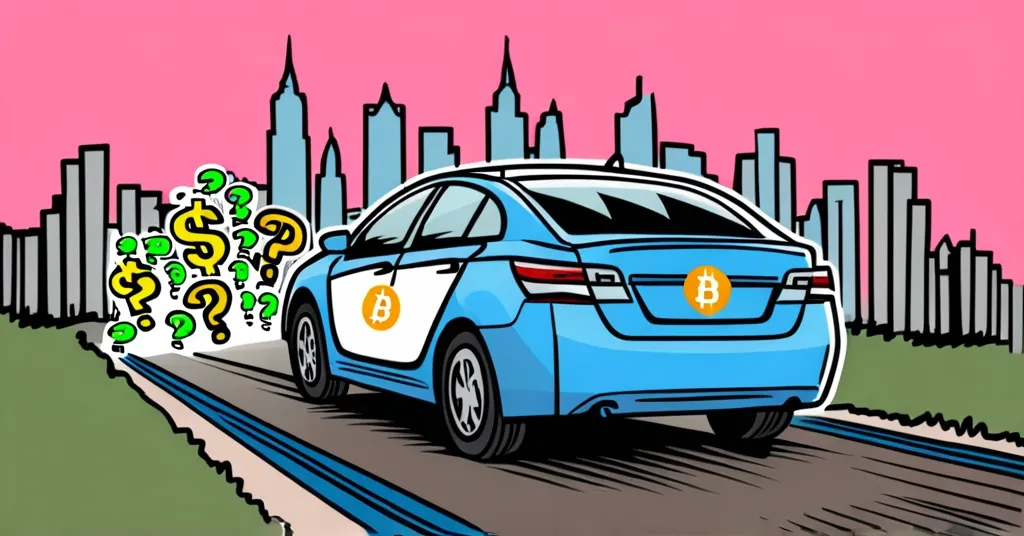Solana’s Teleport Ridesharing App Shuts Down: Decentralized Challenges in Focus

Solana’s Teleport Ridesharing App Ceases Operations Amid Market Hurdles
Solana’s Teleport ridesharing app, which promised to revolutionize ridesharing through blockchain, has announced its closure. Launched in early 2022, the app faced low user adoption and fierce competition from established players. The shutdown emphasizes the challenges decentralized apps (dApps) confront in scaling and maintaining sustainability.
- Solana’s Teleport ridesharing app shuts down
- Launched in 2022, struggled with user adoption and competition
- Highlights challenges for decentralized apps in scaling and sustainability
Teleport burst onto the scene with high hopes in early 2022, aiming to upend the ridesharing industry by harnessing the power of the Solana blockchain. For the uninitiated, a decentralized app, or dApp, operates without a central authority, leveraging blockchain technology for transparency and security. Teleport’s vision was to provide a platform where transactions were not only secure but also transparent, potentially drawing in users wary of centralized control. Despite raising $9 million and launching publicly in June 2022, the app’s journey was cut short.
By November 2022, Teleport had facilitated 1,321 rides and attracted 13,834 users. While these numbers might seem promising, they were insufficient for the app to gain a foothold against giants like Uber and Lyft. Apple app store reviews highlighted a significant issue: driver availability, a make-or-break factor in ridesharing. Even with a lower commission rate of 15%, compared to Uber’s 25%-30%, Teleport couldn’t compete effectively. As Teleport’s engineer Chase put it, “the rideshare market isn’t ready for a decentralized protocol just yet.”
The broader ridesharing market has seen its share of decentralized attempts. Arcade City, launched in 2016, also aimed to challenge Uber but ultimately failed to gain traction. The market has grown, with a 2019 Pew Research Center survey showing that 36% of U.S. adults have used ride-hailing services, yet only 4% use them weekly. This low frequency of usage underscores the challenge new entrants like Teleport face in achieving regular user engagement.
Moreover, the urban-rural divide in ride-hailing usage poses a significant hurdle. Teleport struggled to penetrate rural markets where ride-hailing is less prevalent, further highlighting the difficulty in reaching a broad enough user base to sustain operations.
The volatile crypto market only added to Teleport’s challenges. In a sector where funding can dry up overnight and user confidence can waver, maintaining a viable business model becomes a Herculean task. The promise of decentralization is enticing, but the reality is that it must navigate user behavior, market dynamics, and financial instability.
Teleport’s founder, Paul Bohm, succinctly captured the ordeal: “Despite our best efforts, Teleport has not been able to achieve the necessary scale to continue operations.”
The closure of Teleport serves as a stark reminder of the real-world challenges that decentralized projects face. It’s not enough to have an innovative idea; it must also be executed in a way that resonates with users and competes effectively in a cutthroat market.
“The closure of Teleport is a reminder of the real-world challenges that decentralized projects face in today’s competitive landscape.”
From a Bitcoin maximalist perspective, while the failure of Teleport might be seen as a validation of the focus on Bitcoin’s core principles rather than sprawling into other use cases, it’s essential to recognize the role of altcoins like Solana. They are the testing grounds for new applications, pushing the boundaries of what’s possible in the blockchain space, even if not all experiments succeed. Bitcoin might be the gold standard, but the ecosystem needs these altcoin experiments to explore niches that Bitcoin itself might not fill.
Looking forward, the decentralized ridesharing sector might need to consider alternative strategies. Perhaps focusing on niche markets or integrating with existing platforms could offer a path to viability. Or maybe the answer lies in waiting for the market to mature further, as Chase suggested. But one thing is clear: the vision for decentralized services remains bright, though the road ahead is fraught with significant obstacles that demand innovative solutions and perhaps a more stable market environment.
So, what can we take away from Teleport’s journey? It’s a cautionary tale, but also a reminder that the crypto space is about pushing boundaries and learning from failures. The end of Teleport isn’t the end of the road for decentralized ridesharing; it’s a checkpoint in a marathon that’s still very much underway.
Public reactions to Teleport’s failure have been mixed, with some users expressing disappointment and others seeing it as a learning opportunity for the industry. Discussions on platforms like Reddit highlight the community’s interest in understanding the reasons behind such closures and the future of decentralized applications in the ridesharing industry.
Challenges in developing decentralized applications are not unique to ridesharing, as evidenced by the broader discourse on platforms like Quora, where developers and enthusiasts discuss common hurdles and potential solutions.
The ridesharing market’s analysis, including the potential for decentralized solutions, is a topic of academic interest, with research available that examines the market dynamics and the place of decentralized applications within it. For those interested in deeper analysis, resources like this study provide valuable insights into the decentralized ridesharing market’s current state and future prospects.
- What led to the shutdown of Teleport?
Teleport shut down due to low user adoption and intense competition from established ridesharing companies like Uber and Lyft, compounded by the challenges of sustaining a business model in a volatile crypto market.
- How did Teleport aim to differentiate itself from traditional ridesharing services?
Teleport sought to differentiate itself by leveraging the Solana blockchain for secure and transparent transactions, aiming to offer a decentralized alternative to traditional ridesharing.
- What broader challenges do decentralized applications face?
Decentralized applications face challenges in achieving scale and sustainability, finding a viable business model, and competing with established industry players, all within the context of a volatile crypto market.
- What does the closure of Teleport suggest about the future of decentralized services?
The closure suggests that while the vision for decentralized services remains compelling, the path to widespread adoption and success is fraught with significant challenges that require innovative solutions and perhaps more stable market conditions.



